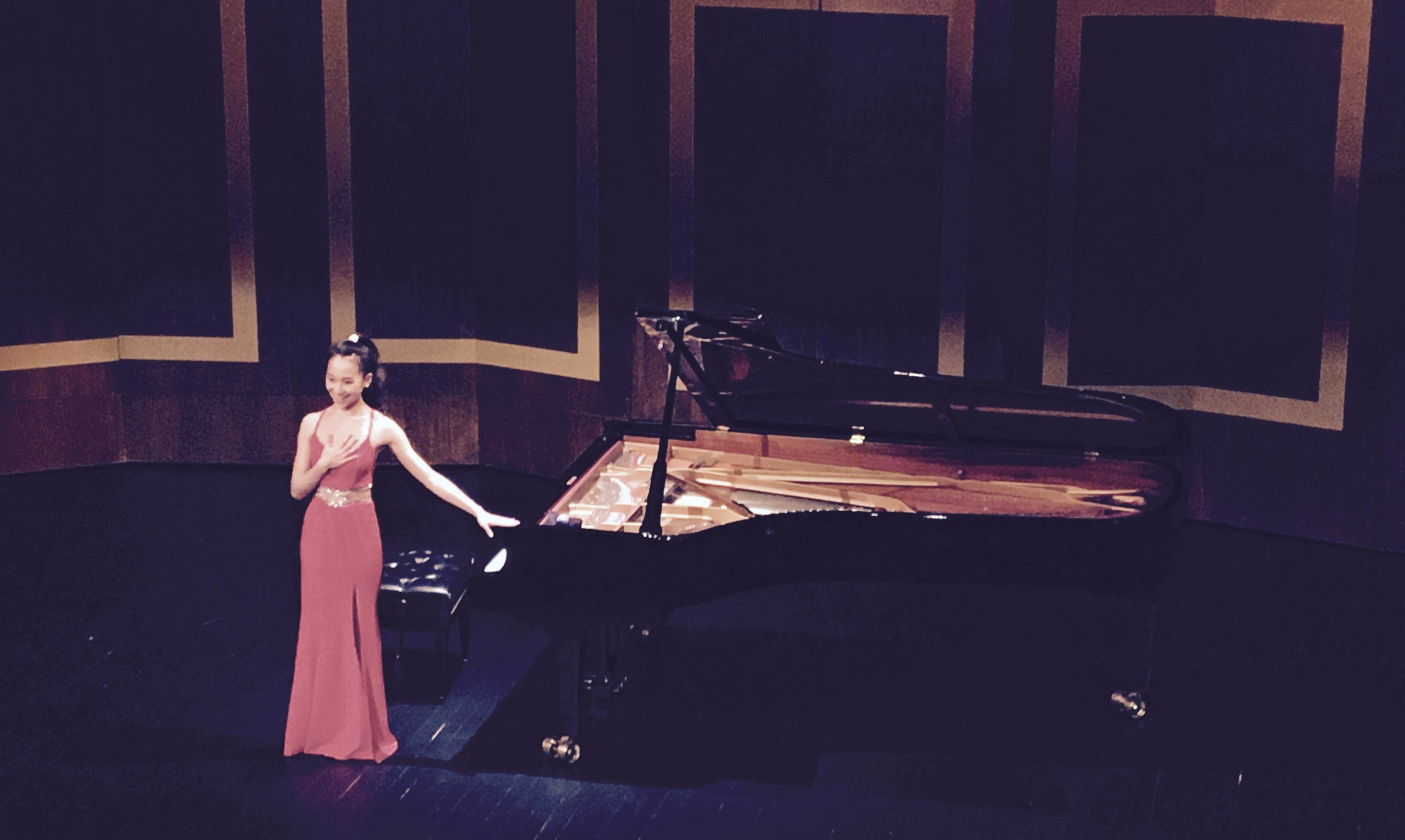Sharing the gloriously odd feature embedded above is the best way to illustrate why I’m smitten with Ema Nikolovska. I was swooning by the conclusion of the operatic vocalist’s United States recital debut at the Folly Theater on Wednesday, March 6.
The voice of the Berlin resident and native Macedonian is good, but good voices are a dime a dozen. Nikolovska is special because she’s a goofball. Her quirky sense of humor and bold creativity are distinctive qualities in the po-faced realm of classical music.
Her delivery of typical repertoire- art songs by Franz Schubert and a set of Claude Debussy compositions she characterized as “a lot of ennui”- was faultless. Yet the unconventional elements of the program were best.
A reading of Margaret Bonds’ “Songs of the Seasons” was exceptionally romantic. The sympathetic playing of pianist Howard Watkins enhanced each endearing moment.
Even better, Nikolovska’s take on Nicolas Slonimsky’s “Five Advertising Songs” almost had the audience of about 300 rolling in the aisles. (Here’s the original "Children Cry".) Paying the Harriman-Jewell Series $20 for the recital was a deal, even if it wasn’t half as freaky as the video.








